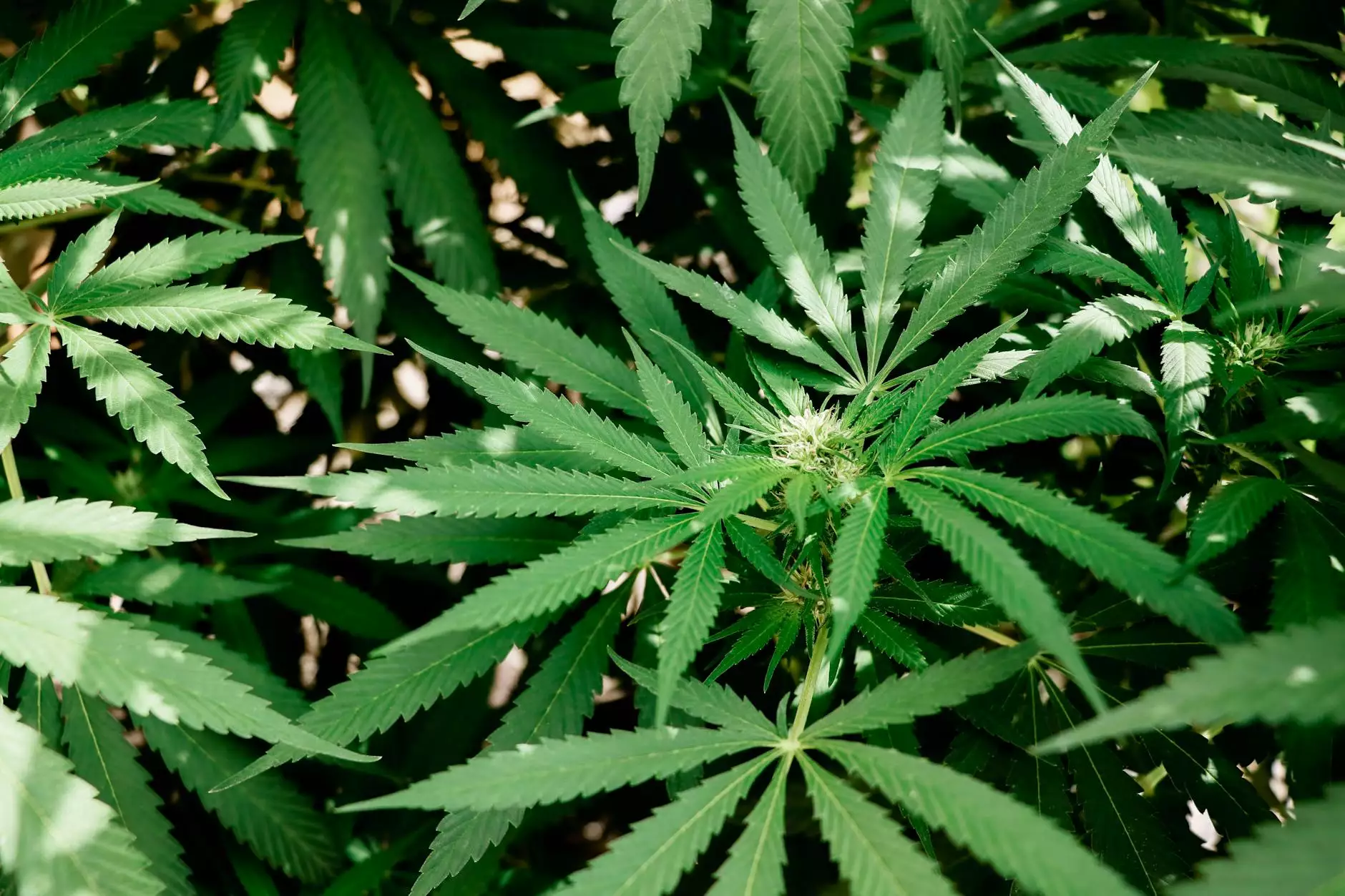Unveiling THCA Flowers: A Comprehensive Guide

THCA flowers have recently garnered significant attention in the cannabis community, both for their medicinal properties and their unique characteristics. As cannabis consumption becomes more mainstream, understanding the nuances of its components, especially tetrahydrocannabinolic acid (THCA), becomes crucial for consumers and medical professionals alike.
What are THCA Flowers?
THCA flowers are the raw, unprocessed buds of cannabis plants containing primarily tetrahydrocannabinolic acid, a non-psychoactive compound that transforms into the well-known THC through the process of decarboxylation, which occurs when cannabis is heated. This unique property makes THCA an essential focus for those seeking the benefits of cannabis without the high associated with its decarboxylated counterpart, THC.
The Chemical Composition of THCA
Understanding the chemical makeup of THCA flowers is critical to grasp how they interact with our body’s endocannabinoid system. THCA has a specific molecular structure that allows it to bind selectively to cannabinoid receptors in the body. This binding process is crucial for its various therapeutic effects, which we will explore in further detail below.
The Difference Between THCA and THC
- Non-Psychoactive: Unlike THC, THCA does not produce a "high." This characteristic makes it a viable option for those who want the benefits of cannabis without the intoxicating effects.
- Potential Therapeutic Benefits: Studies suggest that THCA may have anti-inflammatory, neuroprotective, and anti-emetic properties.
- Decarboxylation: THCA converts to THC when heated, making proper consumption methods important for users seeking different effects.
Health Benefits of THCA Flowers
The potential health benefits of THCA flowers are gaining recognition, especially among patients seeking alternative treatment options. Here are some key benefits:
1. Anti-Inflammatory Properties
One of the prominent benefits attributed to THCA flowers is their potential anti-inflammatory effects. Research indicates that THCA might help alleviate symptoms associated with conditions like arthritis and other inflammatory diseases.
2. Neuroprotective Qualities
There is growing evidence suggesting that THCA can support brain health. Its neuroprotective properties may play a role in preventing neurodegenerative diseases, making it a topic of interest in modern medical research.
3. Anti-Nausea Effects
Cancer patients undergoing chemotherapy often struggle with nausea and vomiting. THCA has shown promise as an anti-emetic, potentially offering relief without the psychological side effects associated with THC.
How to Use THCA Flowers
For those interested in exploring the benefits of THCA flowers, understanding the various consumption methods is key to maximizing therapeutic effects.
Raw Consumption
One of the most effective ways to consume THCA flowers for their benefits is to eat them raw. This method retains the THCA content without converting it to THC, thus delivering potential health benefits without psychoactivity.
Juicing THCA Flowers
Another effective way to consume THCA is by juicing fresh cannabis flowers. This approach allows users to incorporate THCA into their diets while enjoying the natural flavors of cannabis. Juicing also enhances nutrient absorption.
THCA Tinctures and Oils
Tinctures are an excellent method of consuming THCA, as they can be taken sublingually for rapid effects. Many companies now offer tinctures derived from raw cannabis flowers, providing a potent way to access THCA benefits.
Legal Status of THCA Flowers
As with any cannabis product, the legal status of THCA flowers varies greatly depending on your geographical location. In many states where cannabis is legal for medical or recreational use, THCA is likewise accessible. However, it’s essential to stay informed about local laws and regulations surrounding cannabis products.
THCA Flowers in Medical Cannabis Referrals
Healthcare providers increasingly recognize the potential of THCA flowers in medical cannabis referrals. As research continues to unveil their therapeutic benefits, more physicians are recommending THCA for conditions like chronic pain, epilepsy, and other debilitating ailments.
Partnering with Cannabis Collectives
Cannabis collectives play a vital role in educating patients about the benefits of THCA flowers. By collaborating with collectives, patients can access a range of products and information that support their health journeys.
- Education: Collectives provide resources and training for both patients and healthcare professionals.
- Community Support: Being part of a collective fosters a sense of community and shared experience among cannabis consumers.
Exploring Cannabis Tours for Enhanced Learning
Cannabis tours offer a unique opportunity for individuals to explore the world of cannabis firsthand. Many tours focus on educational aspects, including the cultivation and processing of cannabis flowers, such as THCA flowers. Participating in these tours can deepen your understanding of how THCA is produced and its potential uses.
Benefits of Cannabis Tours
- Hands-On Experience: Tours provide direct exposure to the cultivation of cannabis, offering insights into how THCA is harvested.
- Expert Guidance: Knowledgeable guides often lead the tours, sharing expertise that enhances the learning experience.
- Networking Opportunities: Tours allow participants to connect with other cannabis enthusiasts and professionals in the field.
Conclusion: Embracing the THCA Flower Movement
As the cannabis industry continues to evolve, THCA flowers are carving out an important niche, particularly among those seeking therapeutic benefits without psychoactive effects. From their potential anti-inflammatory and neuroprotective properties to their versatile consumption methods, THCA flowers represent a promising avenue for patients and cannabis enthusiasts alike.
By connecting with Venera Factory and participating in cannabis collectives and tours, individuals can deepen their knowledge and maximize the benefits of THCA flowers. This growing awareness is crucial for the cannabis movement, paving the way for greater acceptance and understanding of this remarkable plant.









